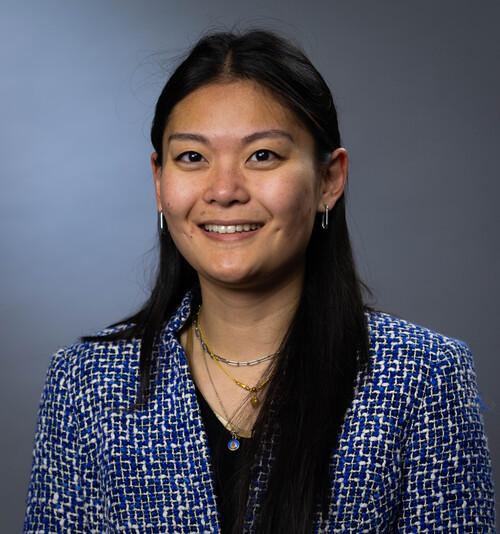Tina Wei

As a member of the People Operations (Human Resources) staff at Google in the mid-2010s, Tina Wei was struck by how many perks employees received in the office: door-to-door shuttle service to work, fitness classes, massages, and pantries stocked with snacks, to name just a few. The company even offered a meditation program—with its own branding worked in.
“They had a really famous mindfulness workshop that started when the company was founded called Search Inside Yourself,” she says. “It reflected the company’s main product—the Google.com search engine.”
Wei’s professional experiences—both at Google and today at the Harvard Trade Union Program (HTUP)—inspire her PhD research at Harvard Griffin GSAS on the history of workplace fatigue. As one of the School’s 2024 Harvard Horizons scholars, Wei presents this work in her project, “Ameliorating Fatigue at Work: Workplace-Management, Mind-Body Medicine, and Self-Help for Industrial Fatigue in the U.S., 1900-1950,” focusing on the evolution of how burnout was understood and addressed in the US during the first half of the twentieth century.
Against a backdrop of widespread union membership and notable labor uprisings in the early twentieth century, workplace dissatisfaction in the US became a pressing issue for employers––and for scientific research. However, as Wei explains, researchers in different fields arrived at varying ways of dealing with the problem of worker fatigue. “One way to think about fatigue was to compare a worker to a machine,” as some medical researchers did, Wei explains. One study, she says, involved measuring how much time a laborer could spend in a hot furnace before collapsing, and then running medical assays on the worker’s bodily fluids to try to understand the processes at play. “Some of these physiologists looked at fatigue as a question of how much you can push this worker-machine until it just totally stops being able to do any more work,” Wei says.
As the years passed, however, researchers increasingly framed worker fatigue as a problem of the mind. According to Wei, one extreme example was E. E. Southard, Bullard Professor of Neuropathology at Harvard Medical School, who claimed that workers agitating for improved work conditions were mentally ill. “They were psychopaths, in his terms, who should receive treatment in the Boston Psychopathic Hospital, for which he was director,” explains Wei.
These contrasting ways of understanding fatigue also had philosophical and human consequences. “Over time, the goal shifted from a desire to preserve worker health to devising schemes to better control the workforce,” says Jones. While physiological research on bodily fatigue was used to support calls for better protections of laborers’ safety, views of fatigue as a mental issue gave employers an excuse to avoid investing in improvements to working conditions.
Flash forward sixty years to Wei’s time at Google. She remembers the company’s investment in collecting information on workplace morale among employees, which sparked her curiosity about what criteria and definitions might be at play in reaching “data-driven” insights about managing workers. While Google’s workplace wellness initiatives did represent a massive financial investment in employee benefits, critics claimed that they also played a role in blurring work-life boundaries and motivating workers to put in longer hours in the office.
Wei’s research is already having a real-world impact. As a program assistant at the HTUP, she shares her work with a broader audience, simultaneously gaining valuable insight into the social and personal histories surrounding US labor activism. Wei hopes her research can help people think more critically about how science impacts our work experience and how we define fatigue and related conditions.
“The insights of historical research show the contingencies and accidents that shaped our world today,” she says. “As historians often say, studying the past sometimes allows us to better see the present, identify the roads not taken, and envision bolder futures.”

